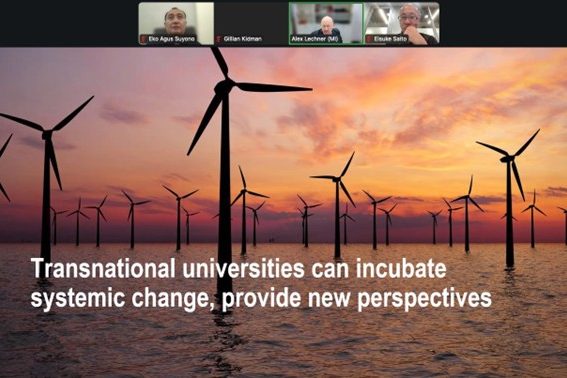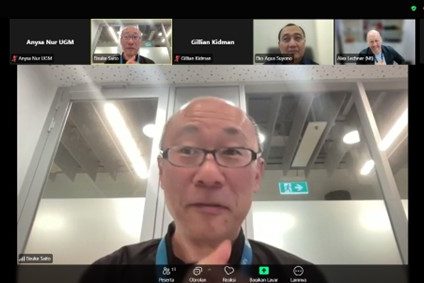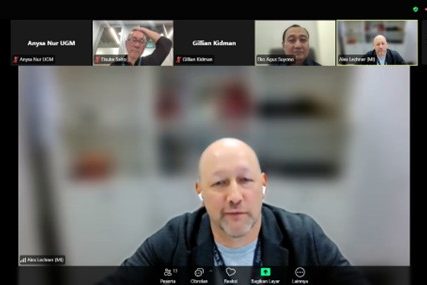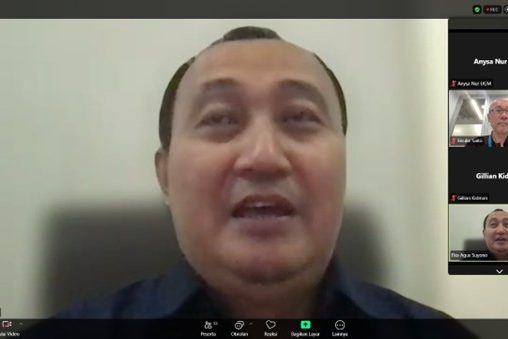Yogyakarta, May 2, 2025 — Dr. Eko Agus Suyono, a lecturer and researcher from the Faculty of Biology at Universitas Gadjah Mada, participated as a speaker in the Regional Research Catalyst Webinar of 2025 Webinar #4 themed “Sustainable Development and Education”, organized by the Faculty of Education, Monash University, Australia. The webinar was held virtually on Wednesday, April 30, 2025, and was moderated by Eisuke Saito from Monash University.
In the webinar, Dr. Eko presented a talk entitled “The Environment, Sustainability, and Universities in Indonesia: An Examination of the Nexus”, which is part of a book chapter co-authored with Ko Nomura of Nagoya University, Japan. In addition to Dr. Eko, Professor Alex Lechner, an expert in urban design from Monash University Indonesia, also contributed perspectives to the discussion on the interconnection between education and sustainable development in the Asia-Pacific region, particularly in Indonesia.
Dr. Eko’s presentation highlighted the historical dynamics and challenges of environmental education and sustainable development in Indonesia. He explained that such programs have existed since the 1970s, and even earlier through the scout movement. Universitas Gadjah Mada was a pioneer in sustainable development programs through a collaborative approach involving faculty, students, and local communities—namely, the Community Service Program (KKN) that began in 1951 as the Student Deployment Program (PTM) to assist the government in providing educators outside Java. This program continues today, having evolved from a development-centered approach to one focused on empowerment, and is now known as KKN-PPM (Community Empowerment Learning-Based Community Service Program).
Furthermore, Dr. Eko emphasized the crucial role of higher education institutions in structurally integrating environmental, economic, and social dimensions. He also noted that strategic funding and institutional support are essential to strengthening the bridge between education, research, and community service in concrete actions addressing Education for Sustainable Development (ESD) issues.
The topic presented by Dr. Eko reflects a strong commitment to the global goals of the Sustainable Development Goals (SDGs), particularly in promoting quality education (SDG 4), developing sustainable communities (SDG 11), taking climate action (SDG 13), and fostering cross-sector and institutional collaboration (SDG 17). By reinforcing the role of universities as agents of change, his presentation affirms Indonesia’s important contribution to the success of the global sustainable development agenda through the integration of science, policy, and community empowerment.




